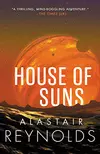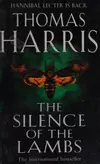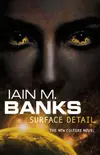Tom

I initially started with the Re: Dracula podcast which releases episodes on the actual diary entry date. I found the voice acting to be good and I enjoyed the novelty but I could not abide by the ads and content warnings so I eventually dropped off in mid September and I only picked it up again with the audible version several months later. This turned out to be a much better way of listening.
Content wise Dracula is something of an oddity. Its first third is excellent with the parallel stories pushing the story along at a satisfying pace. It starts to slow down as everyone eventually converges on London, at times it feels like we are reading through pages of meeting notes as our heros deliberate endlessly. The final third is so drawn out that I started to suspect that the novel was serialised (it's not).
Another irritation is that the novel is very much a 'male-fantasy'. The women are sidelined except as either recipients of the men's noble blood sacrifices, articles of the men's demeaningly progressive compliments (Mina being told she has a "man's brain") or by parroting just how brave and bold said men are.
This is not to say that the novel is bad, just flawed, and I did enjoy listening to it, especially the first half. It's cultural reach is also undeniable and you can feel it's influence well over a century on.
I initially started with the Re: Dracula podcast which releases episodes on the actual diary entry date. I found the voice acting to be good and I enjoyed the novelty but I could not abide by the ads and content warnings so I eventually dropped off in mid September and I only picked it up again with the audible version several months later. This turned out to be a much better way of listening.
Content wise Dracula is something of an oddity. Its first third is excellent with the parallel stories pushing the story along at a satisfying pace. It starts to slow down as everyone eventually converges on London, at times it feels like we are reading through pages of meeting notes as our heros deliberate endlessly. The final third is so drawn out that I started to suspect that the novel was serialised (it's not).
Another irritation is that the novel is very much a 'male-fantasy'. The women are sidelined except as either recipients of the men's noble blood sacrifices, articles of the men's demeaningly progressive compliments (Mina being told she has a "man's brain") or by parroting just how brave and bold said men are.
This is not to say that the novel is bad, just flawed, and I did enjoy listening to it, especially the first half. It's cultural reach is also undeniable and you can feel it's influence well over a century on.

A concise and clear guide to the prevailing ideology of our time and why it's killing our world. Some takeaways
- Capitalism and Neo-liberalism is inherently reliant on colonial exploitation
- Rent-seeking is the primary mode of increasing wealth
- The rich and powerful launder ideas through think tanks that are uncritically regurgitated by the media
- There is a limitation of imagination when it comes to societal change, incrementalism is not the way
A concise and clear guide to the prevailing ideology of our time and why it's killing our world. Some takeaways
- Capitalism and Neo-liberalism is inherently reliant on colonial exploitation
- Rent-seeking is the primary mode of increasing wealth
- The rich and powerful launder ideas through think tanks that are uncritically regurgitated by the media
- There is a limitation of imagination when it comes to societal change, incrementalism is not the way

Alistair Reynolds takes relativistic space travel very seriously and it adds natural tension and scale to his work. House of Suns worked better for me than Pushing Ice mainly due to the strength of the characters, there is emotional depth and empathy here that I couldn't find in the other book.
Alistair Reynolds takes relativistic space travel very seriously and it adds natural tension and scale to his work. House of Suns worked better for me than Pushing Ice mainly due to the strength of the characters, there is emotional depth and empathy here that I couldn't find in the other book.

America-centric as expected and can't resist the urge to bring up Moore's Law at every opportunity but otherwise a good history of the micro-chip and it's profound effect on geopolitics. Some observations:
- The steady state that we have reached is one where foundries manufacture chips primarily for fab-less companies, it's easy to imagine an alternative reality in which chip design and manufacturing is done by a limited pool of massive companies
- None of this is possible without the funding, direct or otherwise, of nations
- Chips are becoming more and more specialised for a single use case rather than being 'general purpose'
- Catching up to the incumbents in the race for more advanced chips is basically impossible at this point
America-centric as expected and can't resist the urge to bring up Moore's Law at every opportunity but otherwise a good history of the micro-chip and it's profound effect on geopolitics. Some observations:
- The steady state that we have reached is one where foundries manufacture chips primarily for fab-less companies, it's easy to imagine an alternative reality in which chip design and manufacturing is done by a limited pool of massive companies
- None of this is possible without the funding, direct or otherwise, of nations
- Chips are becoming more and more specialised for a single use case rather than being 'general purpose'
- Catching up to the incumbents in the race for more advanced chips is basically impossible at this point

A compelling premise that is let down by the character of Svetlana. Throughout the book I didn't know whether to be appalled or impressed that the author had created such a despicable, hypocritical and irredeemable character. By the end, the fact that I was actively rooting against her made the last act more frustrating than thrilling.
A compelling premise that is let down by the character of Svetlana. Throughout the book I didn't know whether to be appalled or impressed that the author had created such a despicable, hypocritical and irredeemable character. By the end, the fact that I was actively rooting against her made the last act more frustrating than thrilling.

America-centric as expected and can't resist the urge to bring up Moore's Law at every opportunity but otherwise a good history of the micro-chip and it's profound effect on geopolitics. Some observations:
- The steady state that we have reached is one where foundries manufacture chips primarily for fab-less companies, it's easy to imagine an alternative reality in which chip design and manufacturing is done by a limited pool of massive companies
- None of this is possible without the funding, direct or otherwise, of nations
- Chips are becoming more and more specialised for a single use case rather than being 'general purpose'
- Catching up to the incumbents in the race for more advanced chips is basically impossible at this point
America-centric as expected and can't resist the urge to bring up Moore's Law at every opportunity but otherwise a good history of the micro-chip and it's profound effect on geopolitics. Some observations:
- The steady state that we have reached is one where foundries manufacture chips primarily for fab-less companies, it's easy to imagine an alternative reality in which chip design and manufacturing is done by a limited pool of massive companies
- None of this is possible without the funding, direct or otherwise, of nations
- Chips are becoming more and more specialised for a single use case rather than being 'general purpose'
- Catching up to the incumbents in the race for more advanced chips is basically impossible at this point








